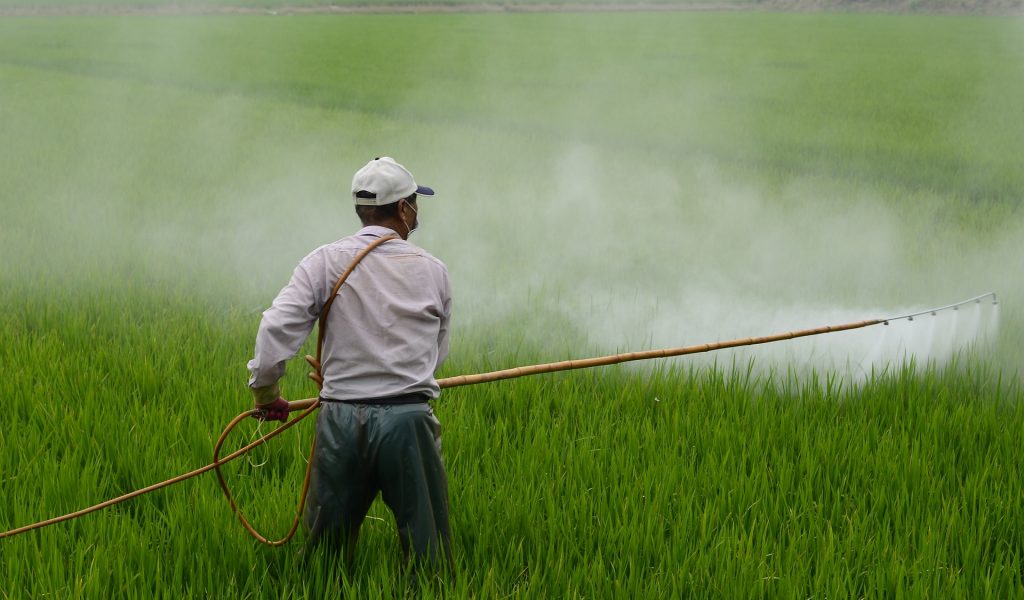Pesticides – our ecosystem up in arms

Charlie Oldroyd discusses the negative effects that glyphosate can have on bee populations and the wider impact of pesticides on ecosystems
The ramifications of pesticide use in agriculture is a well-known issue, culling our populations of pollinators and having adverse effects on humans and the ecosystem alike. Glyphosate- a commonly used herbicide which is banned in at least 10 countries – is the newest combatant that bees are facing.
Use of pesticides have been long campaigned against by environmental groups, yet their practical use in British agriculture means we are yet to see them ousted.
The UK Parliament’s Agricultural bill cites that: “Considering that currently only around 3% of farmland in the UK is organic, then the vast majority of the 70% of land that is used in the UK for agriculture will be land that is regularly sprayed with cocktails of [pesticides]”.
The vast majority of the 70% of land that is used in the UK for agriculture will be land that is regularly sprayed with cocktails of pesticides.
Contamination of soil, land and upheaval of British biodiversity are only a few concerns embedded in the history of Britain’s use of pesticides. Long-term, the production of these chemicals produces large amounts of harmful greenhouse gases raising concerns about global warming amongst an ecological crisis.
Closer to home, Britain heavily relies on its honeybees as promoter of biodiversity and a healthy ecosystem. Pollinators allow plants to fruit, to bloom and spread their seed. If their populations decline much further our delicate ecosystem risks a drastic decline- affecting not only our wildlife but farmers and their livelihoods.
Glyphosate has been found in our food, being used on wheat crops pre-harvest to kill competing grasses and weeds that restrict farmers’ crop yield. Campaigning on ‘Change.org’ one individual implores us to: “Tell the Government to ban weedkiller that causes cancer”.
This shocking information has come to light in a recent US court case that draws direct links between the pesticides and cancer. In short term cases pesticides can cause allergic reactions and health conditions such as rashes, blisters and faintness.
In new research glyphosate has been directly linked to the decline in bees’ neurological functions which allow them to pollinate our ecosystems. Affected bees struggle to distinguish chemically treated produce leading them to bring back the contaminant into their colonies. Alongside this, previous research discerns those pesticides impact bees’ microbial biome- making their immune systems weakened and more susceptible to infection.
The wider impacts of pesticides have led to calls for them to be banned in European markets and a crusade for organic produce in Britain to end agriculture’s reliance on chemicals. It is imperative that to preserve our ecosystems and biodiversity pesticides- namely glyphosate must be banned to ensure the health of the next generation and its wildlife.


